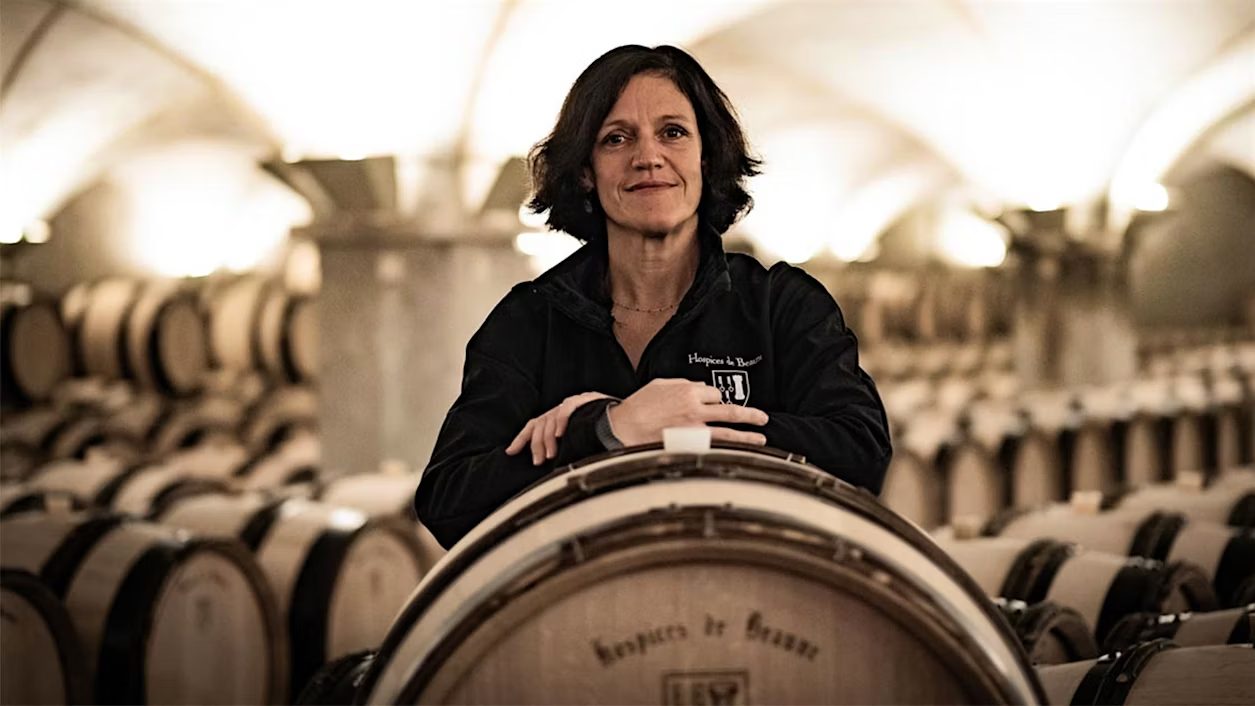Red wine varietals are specific types of wine made primarily from particular grape species. The flavor, aroma, and character of red wines can be highly influenced by the varietal chosen, with some of the most recognized types being Cabernet Sauvignon, Merlot, Pinot Noir, and Syrah. Each varietal offers distinct sensory attributes, which are derived from the specific genetic makeup of the grapes used and can lead to wines that vary widely in taste and aging capacity.
One of the critical factors in determining the characteristics of red wine varietals is terroir—a French term that encapsulates the unique environmental factors in which grapes are cultivated. Terroir incorporates elements such as geography, geology, and climate, which together create a singular habitat for the grapevines. These factors not only influence grape development but also directly impact the flavor profile of the wine produced. For instance, Cabernet Sauvignon typically thrives in warmer climates, producing bold tannins and dark fruit flavors, whereas Pinot Noir, often associated with cooler climates, tends to develop lighter, more delicate flavors.
The significance of terroir in the world of red wine cannot be overstated, as it can shape the overall expression of a varietal, highlighting the complexities of natural wines. Moreover, the interaction between grape genetics and their growing environment leads to variations even within the same varietal. These variations can transform how wines age; some varietals, like Merlot, are known for their softer, fruitier profiles that are approachable at a younger age, while others, like Syrah, may require more time to evolve and develop their robust flavors fully.
Ultimately, understanding red wine varietals elucidates the broader implications of climate and environmental factors on wine production, allowing producers and consumers alike to appreciate the intricate interplay between nature and winemaking.
Climate Change: An Overview
Climate change refers to significant and lasting changes in weather patterns and global temperatures, primarily attributed to human activities such as the burning of fossil fuels, deforestation, and industrial processes. The rise in greenhouse gas emissions has led to a gradual increase in Earth’s average temperature, a phenomenon that has far-reaching effects across various sectors, including agriculture. In the context of viticulture, the impacts of climate change are particularly notable, as they can modify the conditions essential for grape cultivation.
One of the most alarming aspects of climate change is the alteration of temperature profiles across wine-producing regions. Studies have shown that average global temperatures have increased, with regions historically known for specific grape varieties experiencing shifts that could threaten their viability. For instance, higher temperatures can accelerate grape ripening, leading to changes in sugar, acidity, and phenolic compounds which are critical for wine flavor and quality. Furthermore, as temperatures rise, certain varieties may no longer thrive in their traditional growing environments, potentially reducing biodiversity in viticulture.
In addition to temperature shifts, changes in precipitation patterns are impacting wine production. Regions may experience irregular rainfall, which can lead to droughts or excessive moisture. Drought conditions can stress vines and hamper yields, while excess rainfall can increase the risk of diseases such as mildew, posing challenges for vineyard management. Moreover, the frequency and intensity of extreme weather events, such as hurricanes, floods, and heatwaves, are on the rise, threatening the stability of viticultural practices and ultimately affecting the quality and availability of red wine varietals.
The interplay of these climatic changes not only prompts a reevaluation of traditional viticulture practices but also underscores the urgency with which the wine industry must adapt to shifting environmental conditions. As such, understanding these dynamics is crucial for the future of wine production worldwide.
Effects of Climate Change on Red Wine Varietals
Climate change poses significant challenges to the cultivation of red wine varietals, profoundly altering their growth dynamics and qualitative attributes. As global temperatures rise, grape maturation processes are affected, leading to increased sugar accumulation in grapes. This elevation in sugar levels typically results in wines with higher alcohol content, which can influence the balance and overall flavor profile of the resulting wines.
Moreover, these changing climatic conditions impact the acidity levels of grapes. Maintaining a delicate balance between acidity and sweetness is crucial for producing high-quality red wines. Warmer weather can lead to lower acidity, which might compromise the freshness and complexity that aficionados appreciate in traditional red varietals. The interplay of increased sugar and reduced acidity necessitates a reevaluation of winemaking techniques to preserve the desired organoleptic qualities.
In addition to alterations in sugar and acidity, the climate change phenomenon also affects the concentration of phenolic compounds within the grapes. These compounds are integral to the color, flavor, and aging potential of red wines. Changes in temperature can result in variations in tannin levels and anthocyanin production, leading to wines that may lack the richness or depth characteristic of their cooler-climate counterparts.
The impacts extend beyond individual varietals; entire growing regions are shifting as vintners adapt to new climatic realities. Traditional areas such as Bordeaux and Burgundy may face challenges, while regions previously deemed unsuitable for viticulture may become viable. This geographical shift opens the door for the emergence of new varietals that could flourish under the changing conditions, potentially altering the landscape of red wine production significantly.
Furthermore, milder winters and warmer summers can create optimal conditions for pests and diseases, which thrive in elevated temperatures. This poses further challenges for viticulture, requiring innovative pest management strategies and a heightened awareness of sustainable practices to protect vineyards and preserve the integrity of red wine varietals as they continue to adapt to climate change. Such developments highlight the need for adaptability and resilience within the wine industry to navigate this evolving landscape successfully.
Adapting to Climate Change: Strategies for Winemakers
The impact of climate change on viticulture has prompted winemakers to adopt various strategies aimed at preserving the quality and characteristics of red wine varietals. One of the primary approaches involves adjusting vineyard management techniques to better suit the evolving environmental conditions. Practices such as altering planting dates and improving canopy management can enhance grape quality by ensuring grapes receive adequate sunlight while mitigating excessive heat. Furthermore, adopting sustainable practices, such as cover cropping and organic soil amendments, can improve soil health and reduce the need for synthetic fertilizers.
Selecting grape varietals that are more resilient to climate change is another critical strategy for winemakers. As temperature profiles shift, there is increasing interest in varietals traditionally suited to warmer climates. For example, grape types such as Grenache and Syrah, which thrive under warmer conditions, are being explored as suitable alternatives in regions that previously produced cooler climate varietals like Pinot Noir. By diversifying their plantings, winemakers can better safeguard their production against the unpredictable effects of climate-related challenges.
Innovative solutions also play a vital role in adapting to changes in climate. Controlled irrigation practices are becoming increasingly important as water scarcity is exacerbated by rising temperatures. Techniques such as drip irrigation allow for precise water application, conserving resources while ensuring optimal grape maturation. Additionally, some winemakers are even considering vineyard relocation to more suitable regions, which, while drastic, underscores the urgency of the situation.
Research and technology are pivotal in developing sustainable viticulture practices. Investment in climate-focused research enables the wine industry to understand the long-term implications of climatic shifts, while advancements in technology facilitate improved monitoring and resource management. Ultimately, the future of red wine will hinge on the industry’s ability to adapt and innovate in response to the ongoing challenges presented by climate change.












Does anyone else think climate change could inadvertently lead to discovering new, potentially better wine varietals? Just a thought!
Does anyone else think winemakers might discover new, climate-induced flavors instead of just seeing it as a challenge? Food for thought!
Challenges often lead to innovation. Climate change might just redefine wine as we know it!
Interesting read, but wont growing grapes in cooler regions solve the climate change issue for red wine varietals? Just a thought.
Growing grapes elsewhere isnt a sweep it under the rug solution for climate change. Lets think bigger.
Interesting read. But isnt the taste of red wine more due to soil type rather than climate change? Just a thought.
Interesting read. But arent winemakers adapting quicker than we thought? Also, could climate change possibly improve some wine varietals? Just a thought.
Interesting read, but isnt it time we discuss how winemakers can innovatively adapt to these climate changes? Just food for thought.
Could winemakers adapt grape varietals to thrive in climate change? Might give us an exciting, new flavor profile to explore!
Interesting read, but isnt it also possible that climate change might actually improve some red wine varietals, not just harm them?
Interesting read, but arent winemakers already adapting by exploring cooler climates for their vineyards? Lets discuss this.
Sure, but not every wine region can simply relocate. What about their heritage? Its not that simple.
Interesting read, but isnt climate change affecting white wine varietals too? Why the focus solely on red? Lets discuss both sides, folks!
Interesting read, but isnt it possible that climate change could potentially introduce new desirable flavors in red wine varietals? Thoughts?
Interesting read, but isnt adapting traditional winemaking methods to climate change a bit like trying to catch smoke? Just a thought.
Perhaps, but without adaptation, tradition risks becoming extinction. Isnt that a worse fate?
Interesting read, but shouldnt we focus more on preventing climate change than adapting winemaking strategies to it? Just a thought.
I wonder if winemakers could use hybrid grape varieties to counter the effects of climate change on traditional red wine varietals?
Is it possible that climate change might actually improve some red wine varietals? Maybe warmer temperatures could intensify flavors?
Interesting read! But, arent winemakers already adapting to climate change? What new strategies are they implementing? Would love to know more!
Doesnt climate change potentially mean new regions for growing red wine varietals, like England or Canada? Its not all doom and gloom, right?
Interesting take, but isnt there also a potential for climate change to introduce new wine regions? Just a thought.
Isnt it ironic that climate change, while disastrous, could potentially introduce new red wine regions? Thoughts?
Doesnt climate change also affect white wine varietals? Why only focus on red? Cant all winemakers adapt, not just those in red?
Interesting read, but dont you think winemakers adaptation strategies may eventually alter the unique profiles of these red wine varietals?
Interesting read, but isnt there a chance that climate change might actually improve some red wine varietals, not just harm them?
Sure, but at what cost? More palatable reds while the planet suffers? Hardly seems worth it.
Does climate change mean well get new, unique wine flavors or just lose old ones?
Doesnt climate change also potentially introduce new wine regions? Just a thought!
Isnt Merlot more resilient to climate change than other reds?
Does climate change really enhance certain red wine varietals? Seems counterintuitive.
Isnt climate change making our red wines surprisingly more robust and flavor-packed?
Doesnt climate change potentially introduce us to new, unexpected red wine varietals? Maybe its not all doom and gloom, folks.
Indeed, but would you trade our planets health for a new wine flavor? Think about it.
Could winemakers actually be benefiting from climate changes impact on red varietals?
Is climate change really altering red wine flavors or is that a myth?
Are we ignoring the potential benefits of climate change on lesser-known varietals?
While the shift in red wine varietals due to climate change is fascinating, are winemakers truly prepared for this unpredictable evolution?
Winemakers are more adaptable than you give them credit for. Watch and see.
Interesting read, but arent we ignoring the potential positive effects of climate change on cooler wine-growing regions? Just a thought.